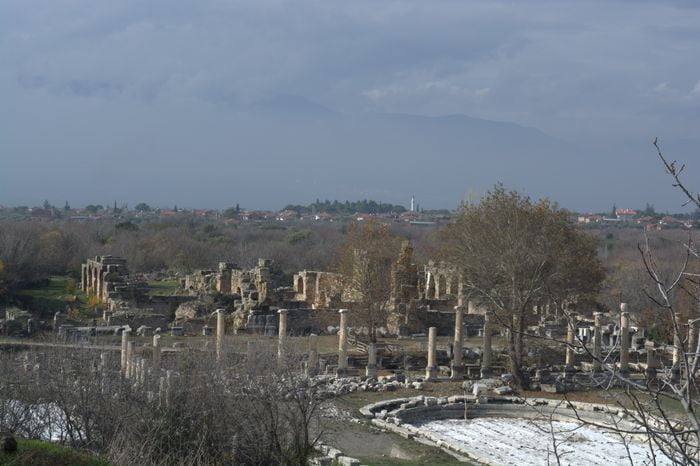So she forthwith persuaded Justinian to send Peter, alone, to Italy as ambassador to Theodatus. When he set out the Emperor gave him the instructions I described in the chapter on that event: where, however, I could not tell the whole truth of the matter, for fear of the Empress. But she gave him this single secret command: to remove the lady from this world with all dispatch; bribing the fellow with the hope of much money if he performed his order.
And when he arrived in Italy (for man is not by nature too hesitant at committing murder, if he has been bribed by the promise of high office or considerable money), by what argument I know not, he persuaded Theodatus to make away with Amasalontha. Consequently raised to the rank of Master of Offices, he achieved immense power and universal hatred. And so ends the story of Amasalontha.
An utter villain and Paphlagonian
Then ,there was a secretary to Justinian named Priscus: an utter villain and Paphlagonian, of a character likely to please his master, to whom he was more than devoted, and from whom he expected similar consideration. And accordingly he very soon became the owner of great and ill-gotten wealth. Finding him insolent and always trying to oppose her, Theodora denounced him to the Emperor.
At first she was unsuccessful; but before long she took the matter in her own hands: embarked the man on a ship, sailing to a determined port, had his head shaved, and compelled him against his will to become a priest. And Justinian, pretending he knew nothing of the matter, never asked where on earth Priscus was, nor ever after mentioned him: remaining silent as if he had utterly forgotten him. However, he did not forget to seize what property Priscus had been forced to abandon.
Again, Theodora was overtaken with suspicion of one of her servants named Areobindus, a barbarian by birth, but a handsome young man, whom she had made her steward. Instead of accusing him directly, she decided to have him cruelly whipped in her presence (though they say she was madly in love with the fellow) without explaining her reason for the punishment.
What became of the man after that we do not know, nor has any one ever seen him since. For if the Queen wanted to keep any of her actions concealed, it remained secret and unmentioned; and neither was any who knew of the matter allowed to tell it to his closest friend, nor could any who tried to learn what had happened ever find out, no matter how much of a busybody he was.
Read More about The Secret History part 22








